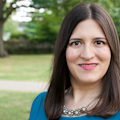Boeing’s Plea Deal, Amazon’s Clean Energy and Hurricane Beryl Makes History: What I’m Reading This Week
This week has come in like a lion and out like a lamb.
I’m busy on the next print issue of EHS Today. I’m trying to coordinate some home repairs. I’m reading about making a strawberry rhubarb pie, thanks to a neighbor’s unexpected gift of some fresh rhubarb. I’m trying to see the Cleveland Museum of Art’s Africa & Byzantium exhibition again before it closes.
In other words, there’s a lot I’m looking forward to. But because I’m a very awkward introvert, these things also stress me out.
Last night, I went for a 15-minute walk to empty my compost at my commercial drop-off location. I couldn’t believe how much better I felt afterward. I guess microbreaks really are effective. I’m going to try adding them to my routine over the next few days. I’ll report back on my findings.
Until then, stay safe and be well!
Boeing’s Plea Deal
Boeing will plead guilty to a criminal fraud charge, the Justice Department announced July 7.
Federal prosecutors gave the aerospace company the choice of entering a guilty plea and paying a fine or facing a trial on the felony criminal charge of conspiracy to defraud the United States for deceiving regulators who approved the Max 737 airplane and pilot-training requirements.
As part of the plea deal, which must be approved by a federal judge, Boeing will pay an additional $243.6 million fine, would have an independent monitor oversee its safety and quality procedures for three years, and would be required to invest at least $455 million in its compliance and safety programs.
The plea deal covers wrongdoing for the airplane crashes in Indonesia and Ethiopia that killed 346 passengers and crew members aboard the new Max 737 jets. A justice department official said in a statement the plea deal does not give Boeing immunity for other recent safety incidents nor does it cover any current or former Boeing officials.
Read more here.
Amazon’s Clean Energy
Amazon announced that effectively all the electricity it used last year came from 100% renewable energy, a goal it had set for 2030, but its claim isn’t a clear win for the environment.
It’s admirable that the company invested billions of dollars in more than 500 solar and wind projects. These clean energy projects can produce enough electricity to power the equivalent of 7.6 million U.S. homes. And some of them are.
These clean energy investments don’t directly power Amazon’s operations; most are sent to electricity grids that serve businesses and homes. That, plus the fact that Amazon is offsetting its natural gas and fossil fuel usage by buying renewable energy certificates (RECs) are why some energy experts say Amazon needs to be more transparent about their calculations and claims about clean energy.
“A company needs to actually outline, what are the sources that you are accounting for in that calculation?” said Simon Fischweicher, director of supply chain and reporter services at CDP to The New York Times. The CDP is a nonprofit group that operates a global disclosure system for investors, companies, cities, states and regions to manage their environmental impact. The nonprofit gave Amazon a “B” grade.
An Amazon spokesperson told the Times that the company is continuing to grow, learn and be more transparent on its sustainability journey. But a group of employees is criticizing the company for its misleading claims to help give the company’s image a boost. Instead, they want the company to invest where the rubber meets the road.
This story is so intriguing because it speaks to how we speak about, and think about, clean energy. As disclosures, standards and reporting on environmental, social and governance matures, our vocabulary will naturally evolve. We’re muddling through in the meantime, but I’m really curious to see what the clean energy landscape will look like five years from now.
In the meantime, read the full story here.
Hurricane Beryl Makes History
This week, millions of people have been affected by the impact of Hurricane Beryl. They will likely be dealing with the aftermath for weeks or months to come, not to mention the looming threat of more hurricanes and tropical storms.
Beryl is one of the first hurricanes of the season, which lasts from June 1 to November 30 and peaks in September.
Hurricane Beryl is the Atlantic Ocean’s earliest Category 5 hurricane on record. And, based on what they’re seeing with Beryl, a number of meteorologists are concerned about the coming months.
“Beryl confirms what we thought about (this) season, that given the extremely warm (water) temperatures that we currently have, we could experience mid-season-type storms earlier than normal,” said Phil Klotzbach, a hurricane expert and research scientist at Colorado State University, to CNN.
Klotzbach and his team are now predicting that the Atlantic hurricane season will have 25 name storms, including 12 hurricanes—six of which are expected to have become at least Category 3 storms.
For now, Saharan dust is traveling over the Atlantic Ocean, causing a pause in tropical activity.
Read more here.
About the Author
Nicole Stempak
Nicole Stempak is managing editor of EHS Today and conference content manager of the Safety Leadership Conference.

